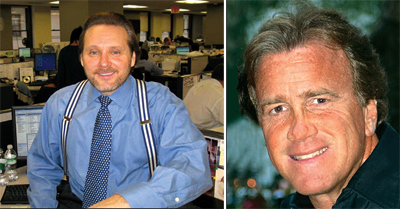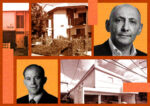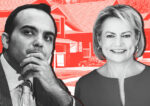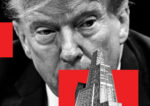Trending
The West Philly (real estate) mafia
The thriving Wharton-Gotham pipeline looms large for alumni

From left: Robert Knakal and Jeff SuttonSometimes, the Penn is mightier than the sword — at least when it comes to New York City’s real estate elite. The roster of “Wharton Mafia” — those who have graduated from the real estate program at the Wharton Business School at the University of Pennsylvania — is long and illustrious.
The school — which now has a center named for billionaire investor Sam Zell and his late business partner — has churned out heavyweight grads like Donald Trump, Ivanka Trump, William Mack, Richard Mack, Jeff Sutton, Andrew Isikoff, Jeff Blau, Robert Knakal, Andrew Mathias, David Brause and Ara Hovnanian.
The schooling can prove professionally transformative. For every heir like Trump or Mack who gains some polish, there are others with fewer — if any — connections who gain the New York real estate world partly through Wharton.
Sutton, one of the city’s most powerful retail landlords, came to Wharton in the late 1970s from Gravesend, Brooklyn, and, after graduating in 1981, built the firm he calls, affectionately enough, Wharton Properties. He’s since funded an internship program for the school.
Knakal, who came from Northern Jersey, cofounded what has become the city’s most prolific investment-sales brokerage, Massey Knakal.
“When I went to school there in the early 1980s, I think they offered six real estate classes, which was a lot at the time,” said Knakal, who guest lectures at the school. “But today there are dozens.”
The West Philadelphia experience puts graduates into a pipeline that often leads them straight into the Manhattan real estate action. Indeed, many grads get practical experience, born from internships and mentorships with Wharton’s Gotham alumni.
These alumni also turn out for two annual networking events hosted by the real estate department. The fall event draws about 300 real estate pros, while the spring event brings out about 500. “New York has always loomed big,” said Joseph Gyourko, the department’s chairman. “One, it’s a very big market; [two] it’s close; and three, it’s the financial capital of the world.”
According to a Wharton spokeswoman, “very roughly” half of its 40 to 60 undergrads and 60 to 80 of its MBAs annually come to New York.
The rise of globalization is, however, stealing some of New York’s thunder. About one-third of Wharton’s student body is foreign and, where a decade ago they might have cut their teeth in Manhattan, they now go to Hong Kong, Singapore or other emerging markets.
Still, the pipeline keeps flowing. “New York,” Gyourko said, “is still the dominant market.”




